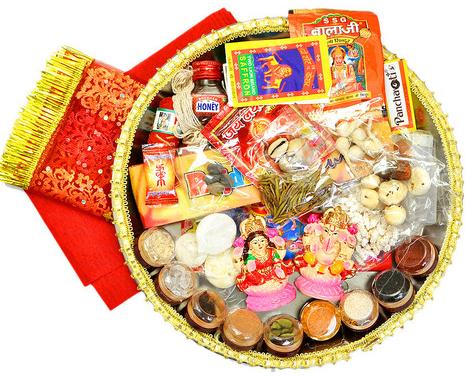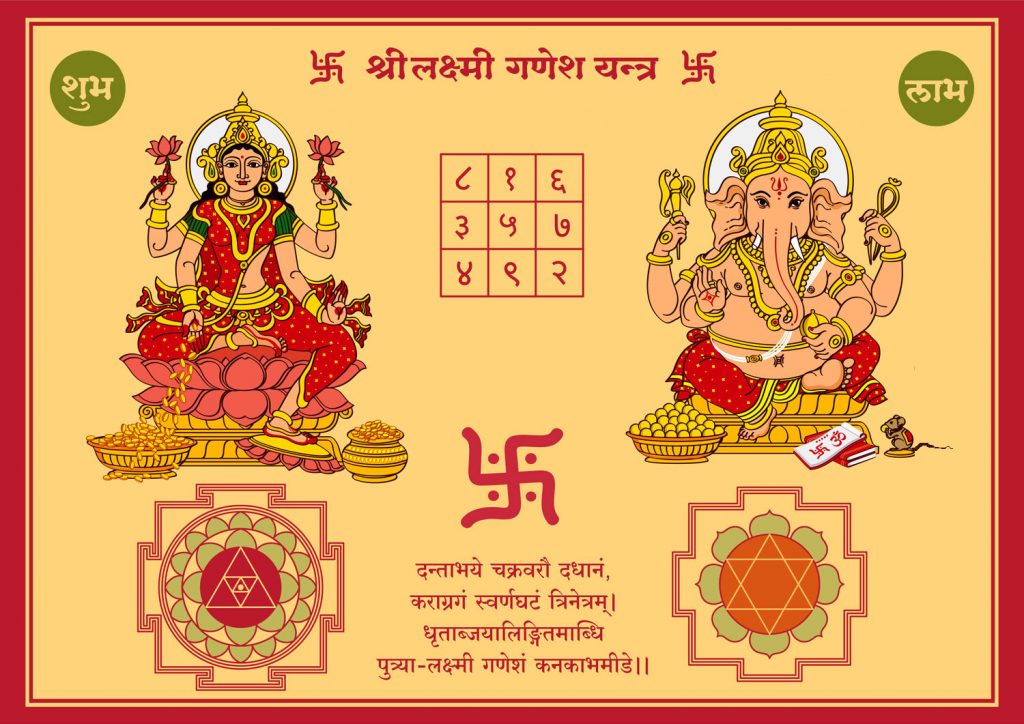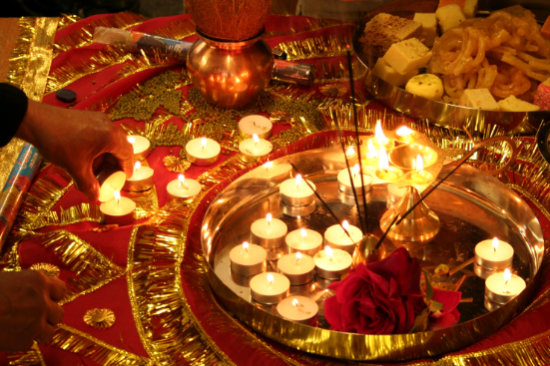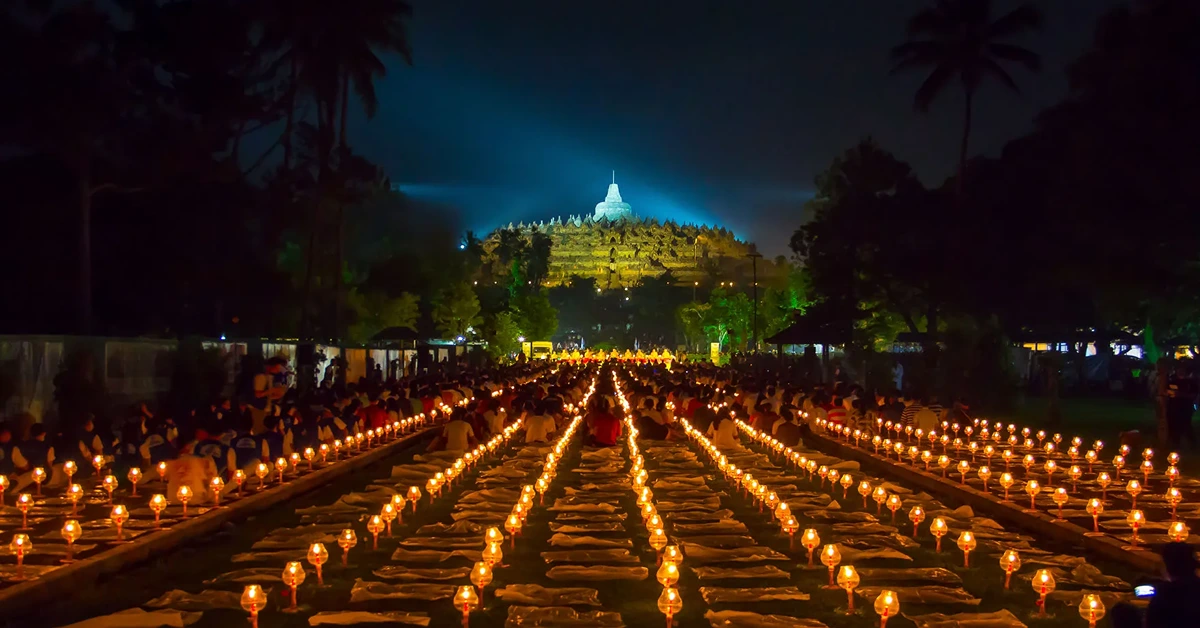Laxmi Puja is an important ritual during Diwali or Deepavali. There were numerous queries on how to do Laxmi Puja at home?
There is no straightforward answer to this question as the ritual varies from region to region. But here is our simple guide to perform Laxmi Puja during Diwali.
It is a day of praise to Goddess Laxmi and by extension the divine mother of the entire universe and the earthly (physical) mother. Most devout Hindus perform the Dipavali Puja in a fixed, ritualistic pattern, by celebrating in praise and offerings to Lord Ganesh, Lord Shiva, The Nine Planets, Kalsa (representing the Universe) and Mother Laxmi.
During Diwali Puja, sixteen prescribed steps conducted are:
- Dhyaana – Meditating on the deity that is being invoked.
- Aavaahana – Inviting the deity into the altar.
- Aasana – Giving the deity a seat.
- Paadya – Washing the deity’s feet with clean water.
- Arghya – Offering the deity water to rinse hands and mouth.
- Aachamana – Offering the deity water to drink.
- Snaana – Bathing the deity with various auspicious items.
- Vasthra – Dressing the deity with clean clothes.
- Yagnopaveetha – Offering the deity a clean sacred thread.
- Gandha – Spreading fresh sandalwood paste on the deity.
- Pushpa – Offering fresh flowers while chanting the deity’s names.
- Dhoopa – Spreading incense smoke throughout the altar.
- Deepa – Waving a lamp to illuminate the freshly decorated deity.
- Naivedya – Offering the deity food.
- Taambula – Offering the deity a refreshing mix of betel nut and leaves.
- Pradakshina & Namaskara – Circumambulating the altar and bidding farewell to the deity.
During the Diwali puja, welcoming of the Deity, giving the Deity a place to sit, the washing of the feet, decorating the Deity, and the offering of food items, clothing or money to seek blessings.
Fresh, sweet-scented flowers along with specific herbs and plants are used, as well as Panchamrit (a combination of milk, ghee, honey, curds and sugar). This particular Puja not only celebrates happiness with light, but with song, chanting, tasting of food, ringing of bells, and the blowing of Conch shells as blessings are bestowed among family members.
 Lamps of clay are lighted to drive away the shadows of evil spirits and are symbolic of Self-enlightenment. It is believed that on this day Laxmi visits each household and showers her blessings for abundance and prosperity. Once the ceremonial worship is finished in the evening, sweets are offered to the goddess as “Naivedya” and distributed as “Prasad”. Feasts are arranged and gifts are exchanged on this day. Gaily dressed men, women and children go to temples and fairs, visit friends and relatives.
Lamps of clay are lighted to drive away the shadows of evil spirits and are symbolic of Self-enlightenment. It is believed that on this day Laxmi visits each household and showers her blessings for abundance and prosperity. Once the ceremonial worship is finished in the evening, sweets are offered to the goddess as “Naivedya” and distributed as “Prasad”. Feasts are arranged and gifts are exchanged on this day. Gaily dressed men, women and children go to temples and fairs, visit friends and relatives.
Three forms of Shakti – Goddess Laxmi, Goddess Saraswathi and Goddess Durga –Lord Ganesh and Lord Kubera are worshipped on the day. No puja is performed without paying customary tributes to Lord Ganesha.
Lord Kubera, represents wealth, and he is the treasurer of Gods. In homes, usually the locker or safe in which gold and cash is kept symbolically represents the seat of Kubera.
One of the most curious customs, which characterizes this festival of Deepavali, is the indulgence in playing cards, especially in North India. It is believed that Goddess Parvati played dice with her husband, Lord Shiva on this day and she decreed that whosoever gambled on Diwali night would prosper throughout the ensuring year. This tradition of playing cards with stakes on this particular day continues.
Business people also worship the account books on this day along with Goddess Laxmi.
This is only a guideline. It is not mandatory to have each and every samagri for the puja or to follow the exact puja process as it is only a methodology to center ourselves and be one with the divine. Try to keep the house and surrounding clean. Finally, if you can’t perform the puja, wherever you are simply mediate on Goddess Laxmi.
More details on Diwali Puja preparation and samagri here >>






